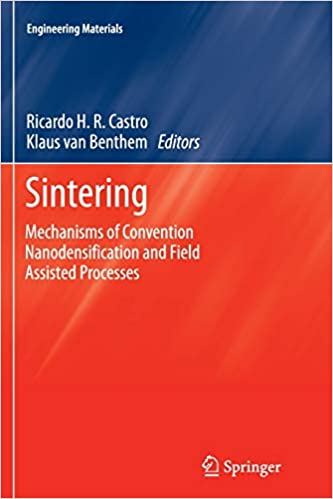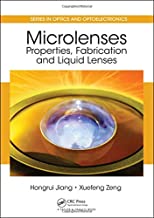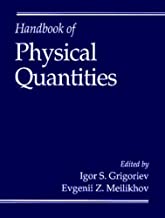Sintering: Mechanisms of Convention Nanodensification and Field Assisted Processes
Original price was: ₹11,236.90.₹8,989.52Current price is: ₹8,989.52.
ISBN: 9783642430138
Author/Editor: Castro, Ricardo
Publisher: Springer
Year: 2013
1 in stock (can be backordered)
Description
Sintering process studies have re-emerged strongly in the past decade due to extensive discussions about the stabilization of nanoparticles and nanostructures, and the development of controlled nanograined bulk materials. This book presents the state-of-art in experiments and theory of novel sintering processes, traditional sintering and grain growth. The scope ranges from powder metallurgy to ceramic and composites processing. The challenges of conventional and novel sintering and grain growth in nanopowders and nanostructures are addressed, being useful for students as well as professionals interested in sintering at the nanoscale.
Additional information
| Weight | 0.9 kg |
|---|
Product Properties
| Year of Publication | 2013 |
|---|---|
| Table of Contents | Preface Chapter 1: Overview of Conventional Sintering Introduction.- Global Driving Forces.- Local Driving Forces.- Sintering, Coalescence and Grain Growth.- Pore Stability.- Sintering Mechanisms: Kinetic Control.- An Unfinished Story.- Summary Chapter 2: Modelling "nano-effects" in sintering Introduction.- Densification Law.- Nonlinear Relation Between Stress and Strain Rate.- A Molecular Dynamics Study of Sintering.- Coarsening Law.- Pre-sintering Agglomeration.- Closing of Large Pores.- Concluding Remarks Chapter 3: Nanoscaled Grain Growth Introduction.- Classical Equation for Grain Growth.- Grain Boundary Segregation and Grain Growth.- Kinetics of Grain Growth for Nanomaterials.- GB Segregation and Solute Drag.- Drag Forces Arising from GB Segregation.- Thermodynamics of Grain Growth for Nanomaterials.- GB Segregation and Reduced GB Energy.- Models of GB Energy Reduced by Solute Segregation.- Thermo-Kinetic Analysis for Grain Growth.- Reduced GB Energy and GB Mobility upon Grain Growth.- Thermo-Kinetic Treatment.- Thermodynamic and Kinetic Nano-scale Analysis.- Models of GB Energy Reduced by Solute Segregation.- Summary Chapter 4: Effect of Powder Characteristics on Nanosintering Introduction.- Controlled Synthesis of Nanopowders.- Top-Down Methods.- Bottom-Up Methods.- Phase Effects.- Amorphous Phases.- Methastable Phase Transformations.- Multi-Phase Considerations.- Sub-Stoichiometry.- Chemical Purity.- Precursor and Processing.- Surface Impurities.- Grain Boundary Impurities.- Size Effects.- Crystallite Size Effects.- Aggregation and Agglomeration Effects.- Agglomerates formed from "Soft Agglomeration".- Aggregates formed from "Hard Agglomeration".- Particle-Size Distribution.- Morphology.- Forming Techniques and Drying Processes.- Green-Body Microstructure.- Tying it Together.- Summary Chapter 5: Discrete Element Method Sintering Simulation: A grain-scale simulation approach Introduction.- DEM Simulation Method.- Equations of Motion.- Sintering Force Laws.- Boundary Conditions.- Initial Configurations Generation Scheme.- Effects of Rearrangement.- Densification Rate.- Bulk and Shear Viscosities.- Crack Formation.- Grain Growth Models.- Nanoparticle Sintering of Printed Circuits.- Summary Chapter 6: Sintering of Porous Materials Introduction.- Fundamentals of Sintering and Porosity Control.- Nanoparticle-Based Sintering.- Nanoparticle-Based Porous Materials.- Partial Sintering.- Template Method.- Reaction Sintering.- Nanoparticle-Based Porous Composites.- Nanoparticles as Initial Materials.- Nanoparticles as Second Phases.- Unique Nanocomposite Systems.- Summary Chapter 7: Electric Field and Current Effects on Sintering Introduction.- Effect of Electric Field on Mass Transport.- Field Effects on Reactivity and Diffusion.- Field Effect on Grain Boundary Mobility.- Observations on the Effect of an Electric Field on Sintering.- Observations on the Effect of a Field on Consolidation and Mass Transport.- Defect Formation, Mass Transport, and Phase Transformation.- Effect of Disorder-Order Transformations.- Consolidation of Nanostructured Functional Oxides using SPS.- Summary Chapter 8: Field Assisted Sintering Mechanisms Introduction.- Arc and Spark Discharge.- Electromigration.- Brief Review of Electromigration Theory.- Electromigration and Solid State Reactivity.- Electromigration in FAST.- Electrotransport and Polarization in Ionic Materials.- Electrochemical Transport and Related Phenomena.- Dielectric Polarization.- Concluding Remarks on Electrotransport and Related Phenomena.- Pressure Effects and FAST/SPS Processing.- Basic Principles of Pressure Assisted Sintering.- Energetics of Pressure Sintering.- Field Effects and Pressure.- Heating Rate Effects.- Kinetics and Driving Force During Sintering.- Reactive Sintering.- Thermodiffusion Chapter 9: Effects of Applied Stress and Heating Rate in Field Assisted Sintering Effect of Applied Stress.- Theoretical Framework.-Experimental Conditions.- Review: Densification Mechanisms.- Review: Grain Growth Behavior.- High Pressure Experiments.- Effect of Heating Rate.- Summary Chapter 10: Characterization of Microstructures Before, During and After Densification Introduction.- Microstructural Characterization.- Scanning Electron Microscopy (SEM).- Transmission Electron Microscopy (TEM).- In sity Electron Microscopy.- Segregation in Nanoparticles.- Anisotropic Grain Growth in Si3N4.- Thermal Sintering in TEM.- Current-assisted Sintering in the TEM.- Summary and Conclusions show less About Ricardo Castro About Professor Castro: http://www.chms.ucdavis.edu/research/web/castro/index_files/Page524.htm About Professor van Benthem |
| Author | Castro, Ricardo |
| ISBN/ISSN | 9783642430138 |
| Binding | Paperback |
| Edition | 1 |
| Publisher | Springer |
You must be logged in to post a review.





Reviews
There are no reviews yet.